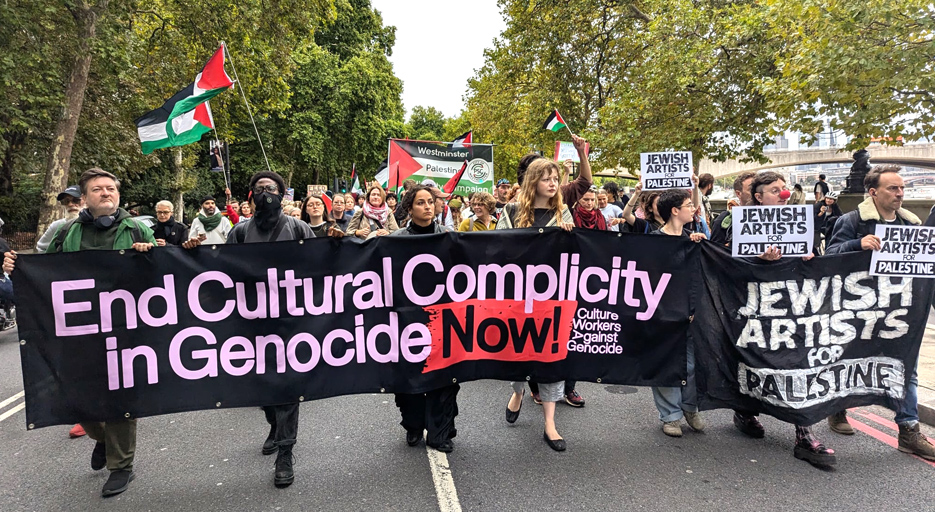
MORE than 2,000 actors, dancers and other artists marched from the Royal Opera House in Covent Garden central London to 10 Downing Street on a Cultural Workers against Genocide march yesterday.
They chanted Up, Up with Liberation, Down, Down with Occupation! Stop the Killings, Stop the Slaughter, Gaza must have food and Water! Free the People, Free the Land There’s no Peace on Stolen Land!
As the march was assembling, people spoke to News Line.
Actor Eleanor Kumar said: ‘The violent people are inciting others in less privileged positions to terror. What we saw on yesterday’s racist march was shameful.
‘But it doesn’t represent the majority of people. Refugees are welcome here.’
Zarmeeneh Khan, an actor, said: ‘I’m here today to be on the right side of history. The government are complicit in war crimes and they need to stop selling their arms to Israel.
‘This genocide has been going on for too long. A general strike would give people power and hold the government to account.’
Seeta Patel, a choreographer said: ‘I’m here to stand in solidarity with the Palestinian people.
‘This is a protest by cultural workers asking our government organisations to stop their complicity in this genocide.’
Tess Haymer, teacher, said: ‘Any position that comes from oppression is not legitimate power. It’s bullying. Free Palestine.’
Sara Masry actress and writer, who led the march to Downing Street, told the rally at the end of the march: ‘As artists we have been hearing in many forms over the past couple of years that we should not be political. That to continue to work in the industry that we have chosen and that we love, we should tone it down, avoid certain topics and statements.
‘This chilling trend is being replicated the world over, but as art workers, as humans, as people of conscience, the only way we know how to be is to express our solidarity, for our work to reflect us, our principles, and our care for others.
‘This is what unites us as artists and cultural workers, not just here, but around the world.
‘We must disrupt from within and without these very institutional structures that allow this genocide to continue, through their funding, complacency, their silence and their complicity.’